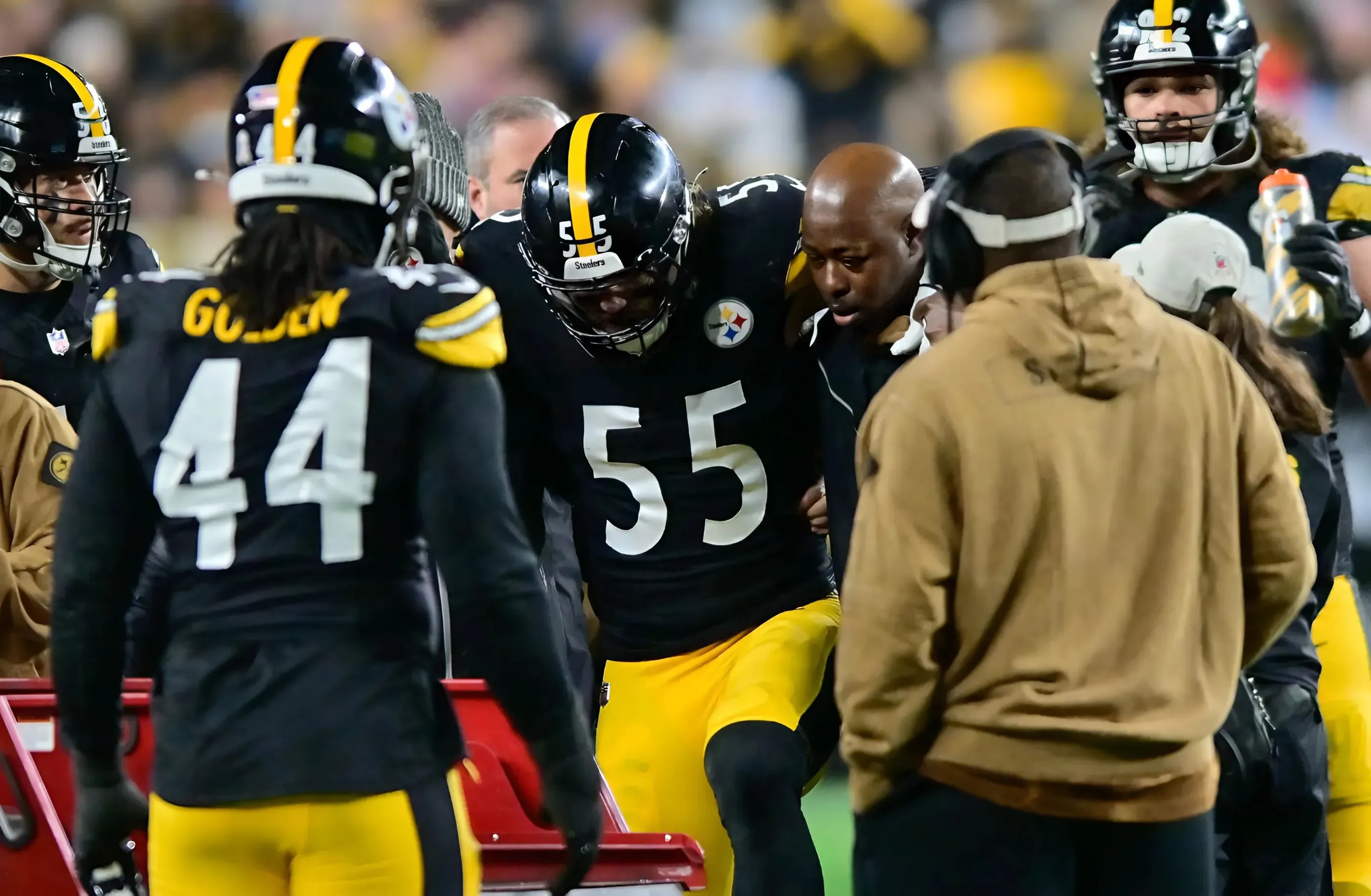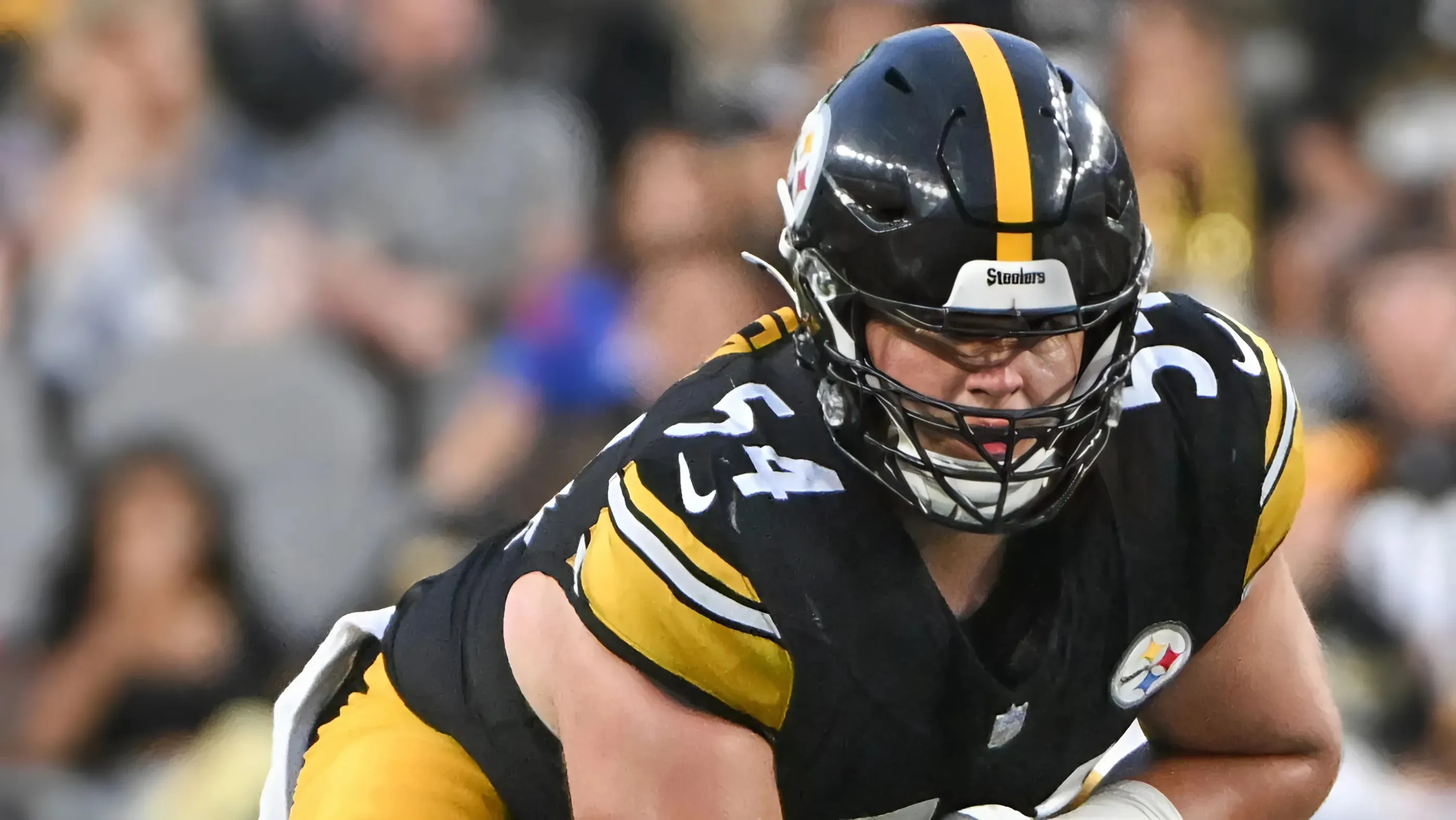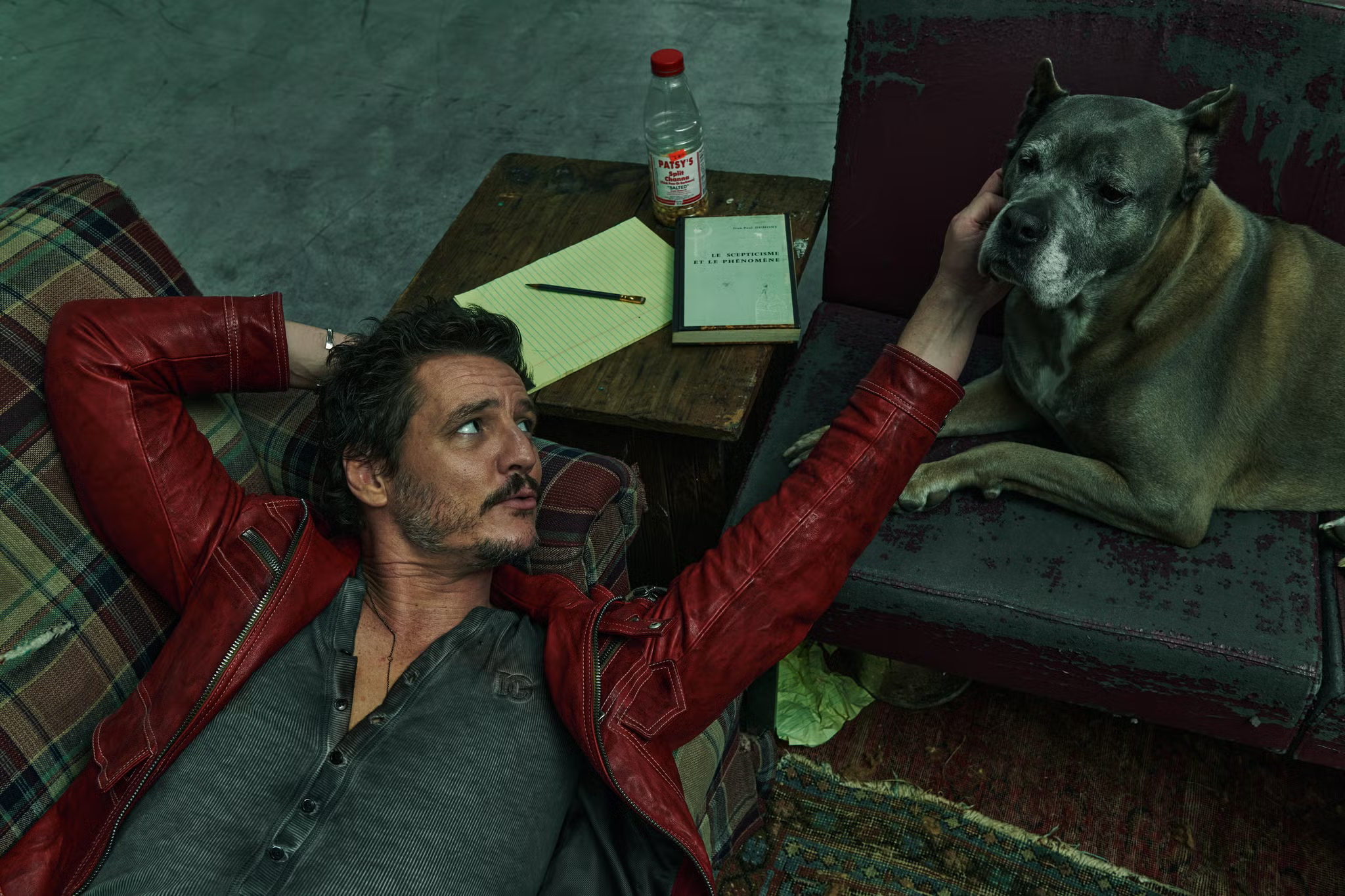
NORMAN JEAN ROY
“I am going to kill you.”
Pedro Pascal says this to me with a smile, which doesn’t mean that he’s joking. We’re sitting across a table from each other and occupying two of the twenty seats at the tiny Tokyo Record Bar on MacDougal Street in Greenwich Village. A few days earlier, I had polled a handful of clued-in New Yorkers with the following question: “What’s a good vinyl bar to take Pedro Pascal to?” Unanimous answer: Tokyo Record Bar! I was imagining a chill lounge space where we’d have some privacy to talk, play a few records, and maybe drink a little tequila. Pascal thought that’s what it would be like, too. Which is not a coincidence—because that’s what I told him.
But Tokyo Record Bar is not that kind of place at all. Instead, it’s a (very good!) seven-course meal in a (very cool!) basement with a (very delicious!) sake pairing. Meanwhile, it’s six-thirty in the evening, and Pascal’s got dinner plans with his “very bossy, please don’t print that” little sister, Lux, at eight. The clock is ticking, and now we’re locked into a whole experience. It feels a bit like the world’s grooviest hostage crisis.
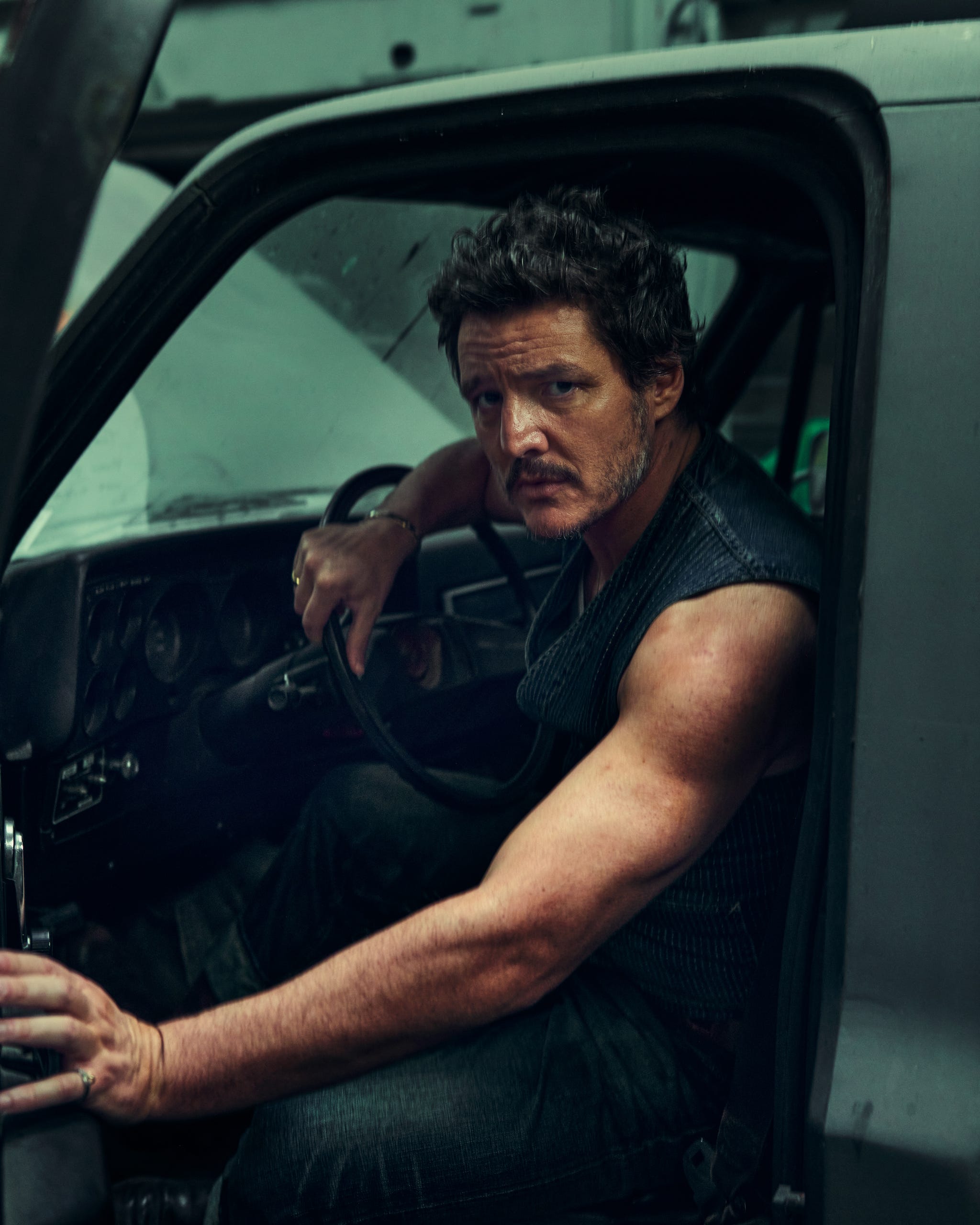
Vest and jeans by Double RL; bracelet and silver-and-gold ring by Title of Work; gold ring by Britt Bolton.
Advertisement - Continue Reading Below
But it is an experience, and we’re going to enjoy it. A reggae cover of Michael Jackson’s “Don’t Stop ’til You Get Enough” spins on the turntable, and we sing along because it’s impossible not to. We are suddenly aware that we’re easily the oldest patrons in the house. “Is anyone in here thirty?” he asks, subtly gesturing around the room. “Maybe, but for sure nobody here is forty,” I answer. The sake arrives, we fill each other’s cups, we say cheers, his friendly eyes light up, and he leans in to tell me something.
Just then the music stops mid-song. “ALLL RIIIIIIGHT!” hollers our hostess from the center of the room. “HOW ARE WE DOOOOINNNGGGG?!?” Pascal’s eyes meet mine and widen as she explains the rules of the place—how to make song requests, what we can do with ourselves if we have any food allergies we failed to disclose when we made the reservation, that the main rule is to HAVE FUN!!!—with the peppy energy of an improv teacher. This is going to be a Whole Thing.
“I was about to tell you that I was kidding and I’m not going to kill you,” Pascal says as the hostess finishes her introductory remarks and Reggae Michael lurches back into gear. I nod, and he nods. He waits a beat. “But I am going to kill you.”
You do not want Pedro Pascal to want to kill you. And it’s not because he has convincingly played some cold-blooded killers onscreen over the past several years. No, what you—all of us, apparently—want is simply more Pedro Pascal in your life. Because if you’re like 99 percent of the population with access to premium streaming TV right now, you can’t get enough of him. And you want him to be your hero or your fashion muse or your pal or maybe even your daddy. He’s a sex symbol and a serious actor in one friendly but unknowable, cuddly but perhaps slightly dangerous package. One of one.
Advertisement - Continue Reading Below
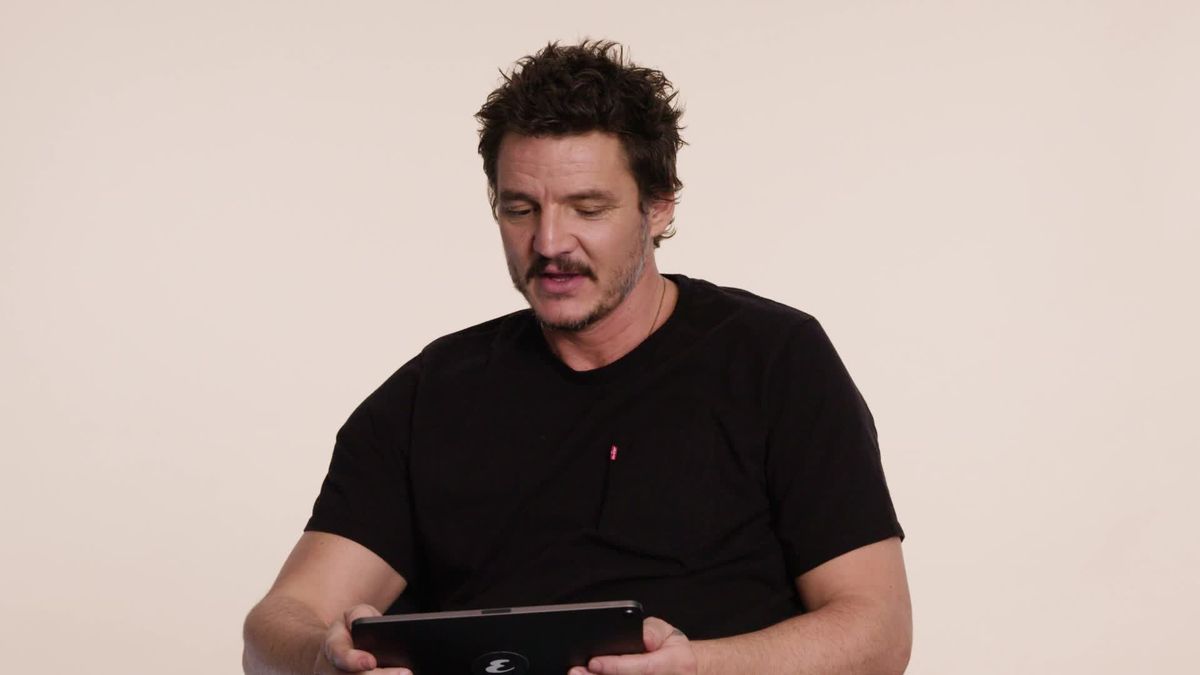
To say that Pascal is having “a moment” doesn’t quite do justice to the kind of exceedingly rare, career-transforming period of cultural resonance that he’s experiencing. After spending much of his twenties and thirties living the life of a struggling actor, Pascal, at forty-eight, has suddenly been propelled to a lofty new level of fame. His face has been familiar for years. There was the short arc on Game of Thrones that ended with his character’s memorable skull-crushing death, for instance. And his role as a relentless DEA agent for a few seasons on Netflix’s early prestige-era Narcos. But his life has been changed by a pair of blockbuster TV series: This winter he captivated viewers in the role of Joel, an antihero survivor in a postapocalyptic America, in season 1 of HBO’s runaway hit The Last of Us. Then he returned for a third season playing the title character on Disney+’s The Mandalorian. In one he defends a surrogate daughter in a world ravaged by fungus-powered zombies. In the other he protects Baby Yoda (aka Grogu) from Imperial Forces and other threats.
Advertisement - Continue Reading Below
Each of these franchises is a massive piece of intellectual property: a video-game adaptation and a Star Wars spin-off, respectively. Rather than getting lost in all the noise and effects, Pascal has managed to craft characters that provide the emotional center to the storytelling—elevating both the shows and himself in the process. “He’s a part of some spectacularly successful things,” says his longtime friend and fellow actor Sarah Paulson. “But sometimes in those situations, the show is the superstar. It’s really exciting to see that he is the thing that is becoming the superstar out of this.”
It’s an uncommon mix of qualities that may account for Pascal’s near-universal appeal. “I’ve always said there are two kinds of actors: There are actors you feel slightly intimidated by, and then there are actors you want to take home and hug and give some soup,” says Craig Mazin, a creator and executive producer of The Last of Us. “And he’s both. Somehow he’s both.”
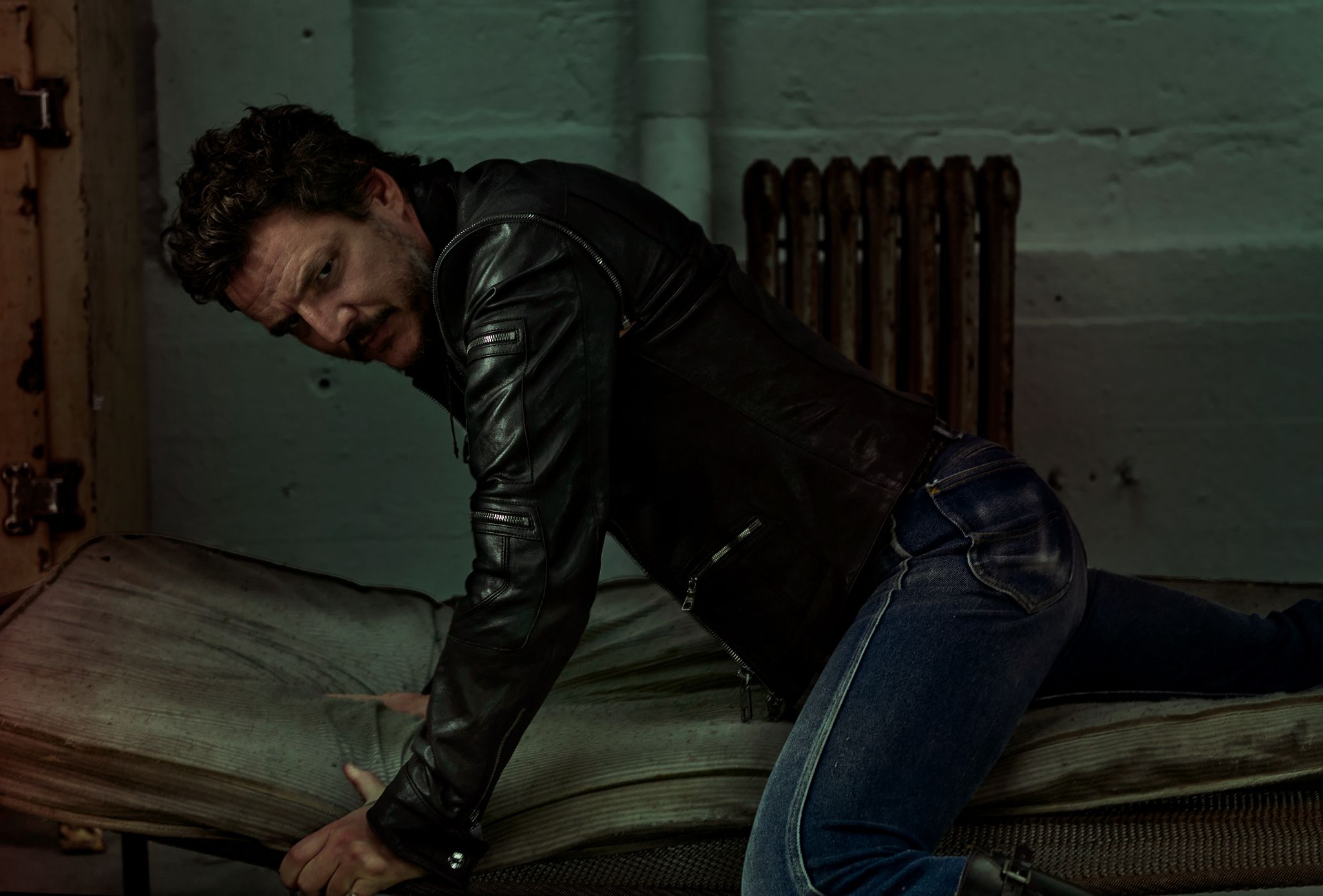
Jacket by Dolce & Gabbana; vintage jeans by Lee; vintage belt available at the Leather Man, N. Y. C.; boots available at Stock Vintage, N. Y. C.
Advertisement - Continue Reading Below
Things are moving at a speed that would be destabilizing for someone less prepared to handle the success. But Pascal gives every impression of being comfortable at the center of the whirlwind. Over the course of a few lengthy conversations—and seven tasty courses at Tokyo Record Bar—he reflects on his long road to stardom, his peripatetic life, and what might be next for him. Whereas many actors his age may credit their homelife with keeping them grounded, Pascal does not have kids or even a steady home of his own these days. There’s an apartment in L. A. that has sat empty while he’s been working on sets in far-flung locations like Canada, Europe, and Pittsburgh. “I had a moment of thinking, You’re in your forties and you don’t own a home? Grow up. But I’m relinquishing expectations around what it is to be middle-aged and what it means to be fully grown up,” he says. “Why am I trying to force a square shape into a triangle?”
And then he sighs and puts it simply: “I just don’t want to make any decisions.”
The streets of New York City typically offer celebrities a degree of anonymity. Actors and rock stars alike blend into the flow, and busy New Yorkers either don’t notice their presence or feign indifference. Pascal used to live in the city, and while he’s had a few years of being famous (“Around 2014, I started to feel some people’s facial expressions change around me on the train”), right now is a new thing. The usual rules don’t apply. Virtually everyone he passes is very much aware of him, and he’s increasingly attuned to that reality. He walks with his shoulders back and straight, his stride quick and decisive, but his head just slightly down. A couple times per block, someone will pass him, turn around, and approach to ask for a picture. And a good half of them say a version of this: “I’m just so happy about what’s happening for you right now.” Frequently those exact words in that exact order. A lot of people do this. Pascal is gracious to each one—he maintains eye contact, he connects, and the fan leaves happy. He’s grateful for the love he feels, but to an observer, it’s easy to see how the intrusion could start to become problematic at some point.
Advertisement - Continue Reading Below
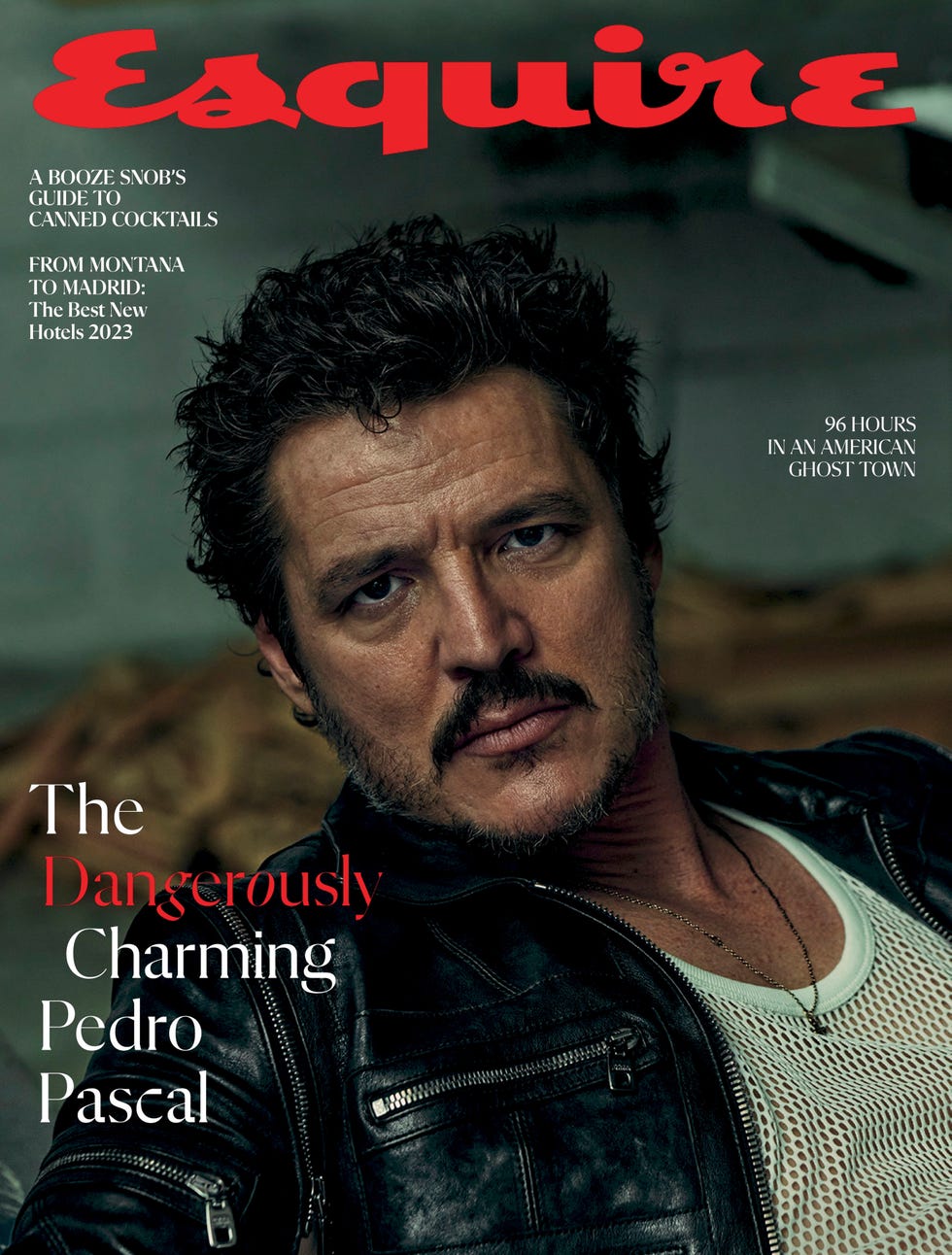
NORMAN JEAN ROY
This article appeared in the APRIL/MAY 2023 issue of Esquire
subscribe
Advertisement - Continue Reading Below
Our dinner at Tokyo Record Bar is happening exactly a week after Pascal hosted Saturday Night Live for the first time, and he’s still recovering. “I’m usually not all that interested in challenging myself,” he says unconvincingly. He mentions a few exceptions, such as shooting The Last of Us for twelve months in Alberta and going toe-to-toe with his idol (“my god”) Nicolas Cage in last year’s The Unbearable Weight of Massive Talent. “SNL was all of those challenges stuffed into one week of my life,” he says. Then he smiles and adds: “I could not have had a better time.”
If you saw it, you know how true that is. “Anybody who watched that episode,” says Pascal’s close friend Oscar Isaac, “I mean, how could you not just fall in love with him? I think that’s why there’s so much goodwill, because you can feel that big heart bursting inside that chest of his.”
What is in Pascal’s chest at the moment is mucus. He’s a little bit under the weather, with a cold that’s been lingering since he woke up from the SNL after-party. He’s going to need to rest, but there’s no telling when that will happen. He has ongoing press for The Last of Us, as well as The Mandalorian to promote. And in May, he’ll be in Cannes for the premiere of Strange Way of Life, a western short he filmed last year with Ethan Hawke and famed director Pedro Almodóvar. In the movie, Pascal and Hawke play former gunslingers who rekindle an old friendship—possibly of the romantic variety. Almodóvar raves about Pascal. “I asked Pedro to play someone solid, emotional, crafty, a cheat if necessary, warmhearted,” he says. “And he played all those nuances with incredible ease. He can be adorably sentimental and hard as nails. He’s a great comic actor, and he can also be impenetrable if necessary.”
Advertisement - Continue Reading Below
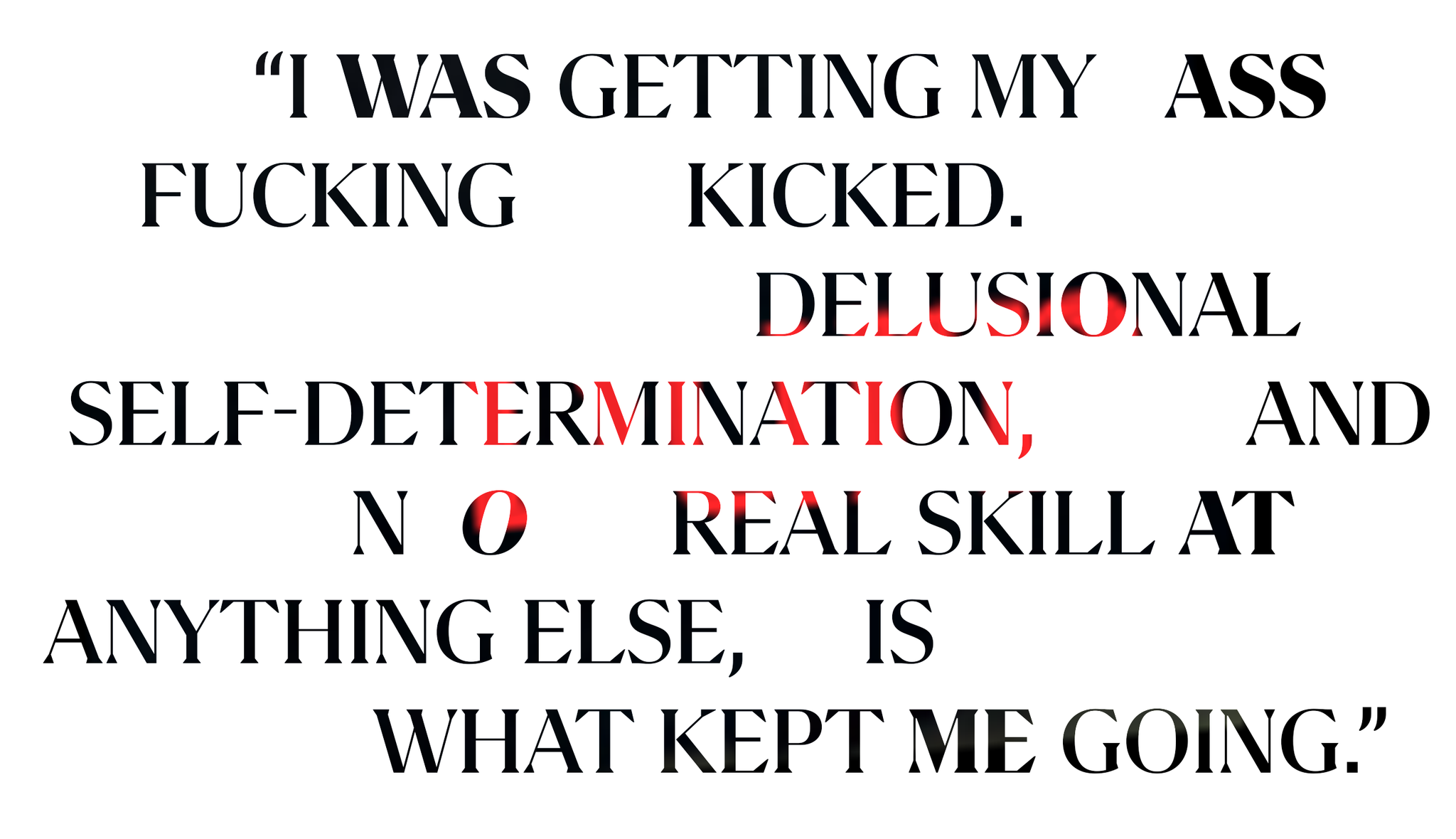
But the most important thing this week is that Pascal’s family—including his older sister, Javiera, and his younger brother, Nicolás—is flying in from all over the world to watch Lux, who will soon be getting her M.F.A. from Juilliard, perform in Ayad Akhtar’s The Who & the What. There are dinners to plan, hotel rooms to sort out. He is desperate not to let anyone down. And he wants to maximize his time with Lux, whom he hasn’t seen since he was in New York for a movie premiere last year. “I get anxious about when I’ll be back again,” he says. “So I’m just trying to see her as much as possible.”
Advertisement - Continue Reading Below
In 1976, when he was just nine months old, his mother and father—she was a child psychologist and he was a fertility doctor—fled Chile to escape the dictatorship of General Augusto Pinochet, who’d seized power two years earlier. They got asylum in Denmark, then moved to the U. S. and initially settled in San Antonio. The family later moved to Orange County, California, when Pedro was eleven. He’s flipped between the east and west coasts ever since.
Pascal pulls out his iPhone to scan the QR code for Tokyo Record Bar’s sake menu. The picture on his lock screen is of Prince, mid-eighties, mid–guitar solo. His parents took him and his older sister to a movie theater in San Antonio to see what Pascal accurately calls “the very rated-R Purple Rain” in 1984. His dad loved to go to the movies. “My mother had too restless a mind for that, an artist’s mind,” he says. “But in that theater, she fell in love with Prince.” So young Pedro fell in love with the movies and with Prince.

Jacket by Dolce & Gabbana; vintage jeans available at What Goes Around Comes Around; vintage boots by Florsheim; necklace by Werkstatt: München; bracelet and silver-and-gold ring by Title of Work; gold ring by Britt Bolton.
Advertisement - Continue Reading Below
His mother would drop him off at the movie theater in the morning and tell the staff she’d pick him up at six. And a kid can watch Raiders of the Lost Ark only so many times. “I saw The Big Chill,” he says, “and there was this joke about herpes, which I had no idea what that was, but everyone laughed, so I laughed. You want to keep up.” He saw the trailer for the Coen brothers’ Blood Simple. Heavy stuff. “It was exciting not getting it. Knowing that that was the thing that was waiting for you.”
After Daft Punk and A Tribe Called Quest, Pascal’s song comes on. It’s “Come See About Me” by Diana Ross and the Supremes. His shoulders bounce. His expressive eyes express joy. “Come see about me, leave me alone, come see about me, leave me alone.” He laughs. “That’s my catchphrase.” When I look down, I notice that he has snuck his third course, a (very tasty!) lettuce wrap, onto my plate. Sleight of hand. I will be eating for two tonight so that he can bring an appetite to the family dinner. “This will be your first exposure to my evil,” he says.
The song wakes a memory up. “My mom did have that blouse from The Big Chill, though. The vintage one. Here, let me look it up.” I know which one he means, but he Google Image searches anyway, and suddenly we’re two middle-aged guys bopping to Diana Ross and yelling excitedly about JoBeth Williams. He is maybe back on the fence about killing me.
Another one of the grown-up movies Pascal watched with his family was the 1982 Costa-Gavras film Missing, a thriller based on true events and set in the Pinochet-era Chile his parents had left behind. There’s an extremely tense scene in which Sissy Spacek’s character is stuck in the city after curfew. “She reminds me of my mom. She’s not a hundred pounds, five-foot-two, just like her.” He was seven, and in his eyes as he tells the story, he still is. “I had a visceral reaction to that once I realized that she could have been in that kind of peril. It overwhelmed me. I started crying and I kind of can’t remember what happened after that.”
Advertisement - Continue Reading Below
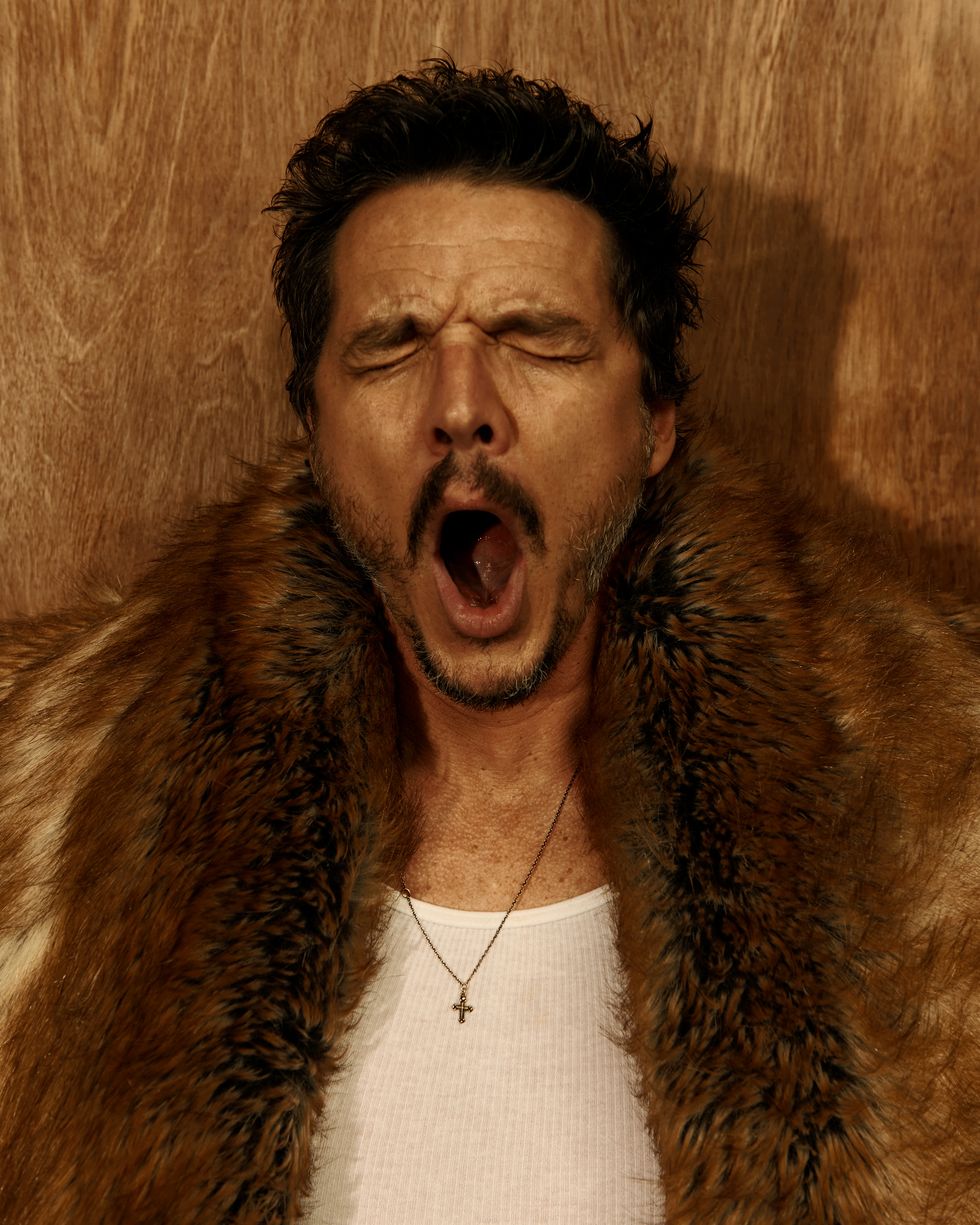
Coat, Saint Laurent by Anthony Vaccarello; tank by Hanes; necklace by Werkstatt: München.
These days, he sees his mother in Lux, who is seventeen years younger than Pascal. She and Nicolás returned to Chile with their parents when she was just a baby. “She ruled the household right away. When my older sister and I would visit, we were like intruders. Our mother was her mother, but for us to think that we were entitled to this woman’s attention in any way was absurd.”
Advertisement - Continue Reading Below
We are talking during a particularly grim week for trans people, a population that includes Lux, and you are probably reading this during another one. I ask what this moment in time is like for her, and his immediate reply is: “You mean in terms of the pandemic?” His eyes tell me he knows that’s not what I mean, and I’m immediately sorry I asked. Can’t Lux just be Lux, have an exciting week, do her graduation show, see her family? Why does she have to dignify every Twitter and CPAC jackass with a response? Can’t everyone who isn’t straight or cisgender just exist, without having to make a statement? It’s possible I’m projecting all of that onto his answer. But also, maybe not. I’m telling you: Those eyes are expressive.
“I wouldn’t want to speak on her behalf,” he continues, “but she is and has always been one of the most powerful people and personalities I’ve ever known. My protective side is lethal, but I need her more than she needs me.”
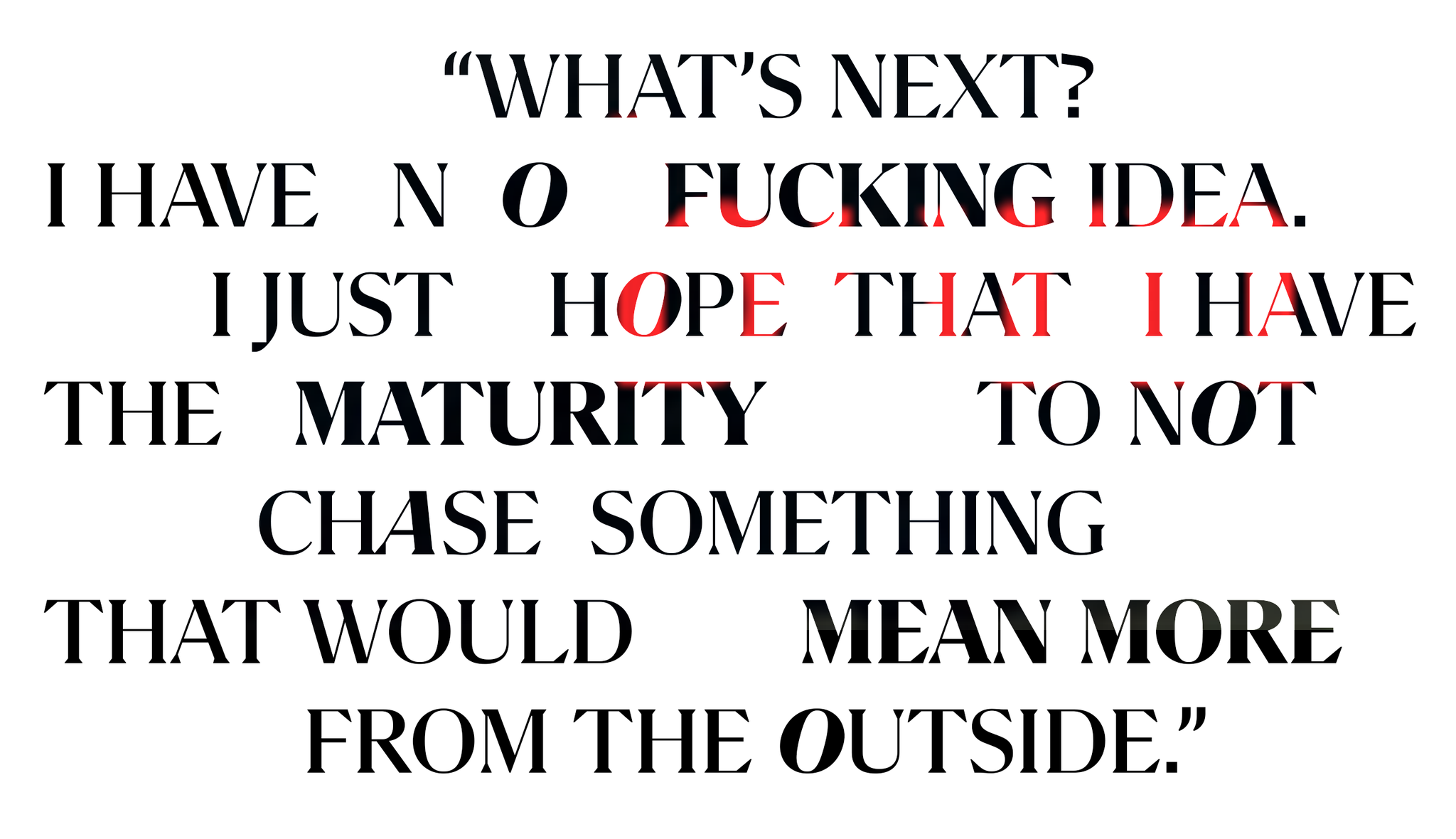
Advertisement - Continue Reading Below
Texts from siblings and cousins are still coming in—an Airbnb has fallen through here, the location of tonight’s dinner has been forgotten there. We get the check and start to hightail it out of Tokyo Record Bar. But not before the guy next to us, who’s been keeping his cool this whole time, tells Pascal he’s a big fan and he’s just so happy about what’s happening for him right now. And then the chef does the same.
The mysterious grown-up feeling Pascal got from movies as a kid led him to New York in 1993 to attend NYU’s Tisch School of the Arts. He quickly fell in with a group of recent graduates of the city’s celebrated Fame school, LaGuardia High. “I got an entire New York family through them,” he says, “to the point where they still forget I didn’t actually go to high school with them.” Sarah Paulson was a member of that family, another person to see the light in the darkness of the movie theater. “We would go to see movies all the time in those years,” she tells me, “and we would get so lost in them. You can fill in the blanks about the why of that however you like, but I think there were things we wanted to escape mentally, emotionally, spiritually.”
Pascal relives these years for me over brunch at Cafe Mogador on St. Mark’s Place in the East Village the Monday after our fraught experience at Tokyo Record Bar. He had a lot of lean times post-NYU. “I was getting my ass fucking kicked,” he says. He spent the late nineties auditioning for commercials and industrial films while waiting tables at a laundry list of Sex and the City–era New York restaurants: Time Cafe, El Teddy’s, Pangea, Ruby Foo’s, and on and on—most of which he got fired from, and two of which he says are the places where he “really learned how to drink.” He’d get close on an acting job, and they’d go with the other guy, but the feedback would be good enough for his representation not to drop him. “I guess that, and this delusional self-determination, and no real skill at anything else, is what kept me going.”
Advertisement - Continue Reading Below
Pascal moved from New York to Los Angeles in 1999 and started booking some television work. A Buffy the Vampire Slayer, a Touched by an Angel, three episodes of MTV’s sexy anthology series Undressed that have just resurfaced on TikTok. Things were popping, a little.
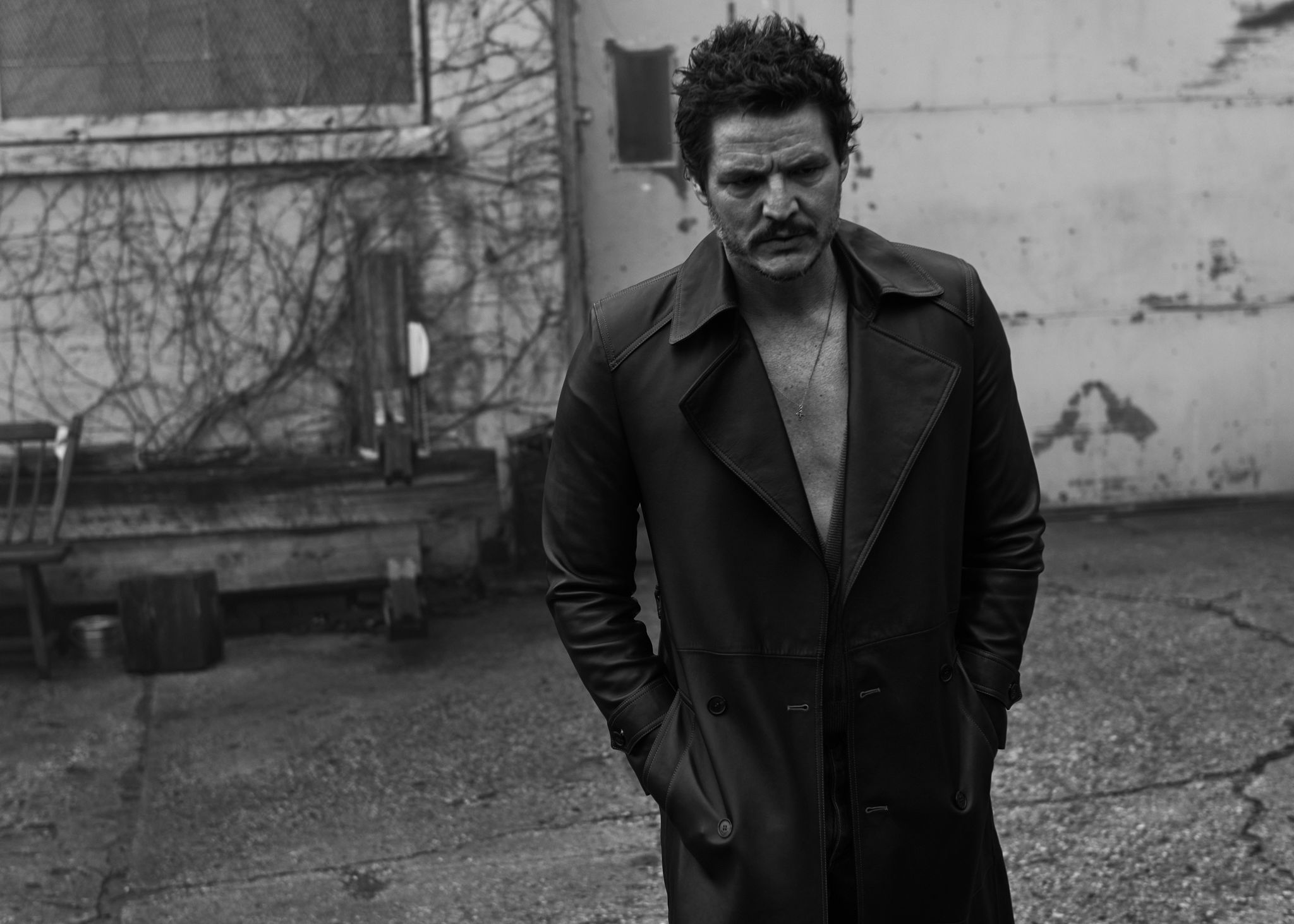
Coat and knit, Saint Laurent by Anthony Vaccarello; necklace by Werkstatt: München.
Advertisement - Continue Reading Below
And then the next year, back in Chile, his mother died. Pascal, who was twenty-four at the time, flew home immediately to be with his family, including his much younger siblings. “They were very young kids, so much younger than me and my older sister, so even if they hadn’t lost a parent, we would still feel parental toward them. And I didn’t naively think I could fill a space like that, but I just always wanted to be like, I’m here.” To honor his mother, he began using her maiden name, Pascal, as his stage name.
The date on his mother’s gravestone is February 4, and this year that happened to be the date Pascal was hosting SNL. “I was so scared that week that I was talking to her.” He would get home after a long day of rehearsing for the show, “and then there would be that terror waiting for me—that practical fear of bombing in front of the world. And then I talked to her, and it was really comforting. I had sort of the realization that it would be nice to talk to her more.”
“What did you say to her?” I ask.
“I love you. I miss you. Thank you. I’m scared. I would love it if you would help me believe in myself, because I know you do. You know?”
A breath. “That’s enough.”
It’s obvious that the pain of losing his mother is still profound and very present for Pascal, which makes it difficult to discuss. But it’s not just his own feelings he’s thinking about. Safeguarding the emotions of others—including his siblings, his father, and their extended family—is always front of mind for him. “It could have to do with the fact that I don’t have my own family, and that my siblings and my chosen family are where I invest all of my emotional energy,” he says. “But I’m also a little protective of people’s experience in general.”
Advertisement - Continue Reading Below
Even mine. “The possibility of you feeling bad about the record place the other night? That haunts me,” says Pascal. “I would want to erase that for you.” That protective urge comes through naturally in his work. He is intuitively empathetic. An instinctive guardian.
Around 2000, Pascal moved back to New York and returned to the grind—more auditions, more near misses. “He’s talked about this publicly,” Paulson says, “but there were times when I would give him my per diem from a job I was working on so that he could have money to feed himself.” Pascal worried that it was never going to happen for him. “I died so many deaths,” he says. “My vision of it was that if I didn’t have some major exposure by the time I was twenty-nine years old, it was over, so I was constantly readjusting what it meant to commit my life to this profession, and giving up the idea of it looking like I thought it would when I was a kid. There were so many good reasons to let that delusion go.”
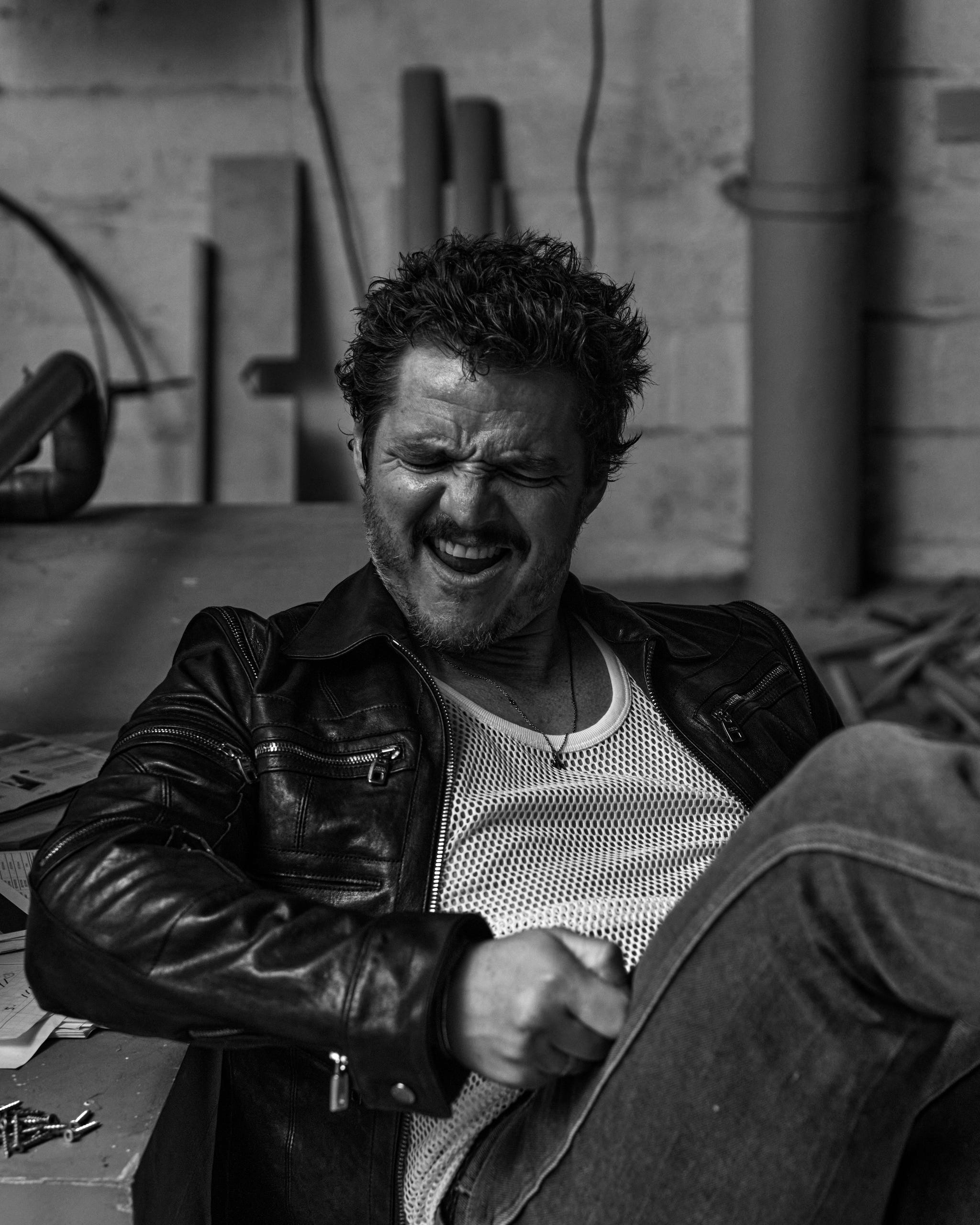
Jacket by Dolce & Gabbana; tank by AMI; vintage jeans by Lee; necklace by Werkstatt: München; gold ring by Britt Bolton.
Advertisement - Continue Reading Below
In 2005, he was cast in Manhattan Theatre Club’s off-Broadway production of Beauty of the Father along with Oscar Isaac. The two developed a tight bond. “There doesn’t seem to be a separation in his depth of feeling, as a human being on earth and as a character in a play,” says Isaac. “The emotional through line is consistent, just really raw and honest.” Isaac has had a bit of a career liftoff himself since then, and now he’s getting to watch it happen to his friend. “He’s my family,” says Isaac. “And I don’t have a fucking clue about the fame part of it—I just see somebody who’s finally really getting the recognition that he’s due.”
Indeed, the fact that Pascal had to work through so many setbacks on his journey to superstardom makes it all the more satisfying for his fans in the industry. “This was not somebody Hollywood sweated to make a star,” says Mazin, the Last of Us co-creator and EP. “They didn’t keep him out, but they didn’t drag him along, either; they just sat there with their arms crossed. And he fought all the way, and every single time, he connected.” He adds, “I’m just honored that my name will be forever near his in a Wikipedia page.”
Pascal’s emotions are right on the surface, radiating out through those expressive eyes. So it’s a little surprising that some of his Hollywood peers compare Pascal to one of American cinema’s most famous stoics: Clint Eastwood. Jon Favreau, the creator of The Mandalorian, tells me, “The original Boba Fett armor and the T-visor were based on Clint Eastwood’s the Man with No Name, where they used angles and the brim of his hat to hide his eyes. We wanted to adhere to that tradition, and Pedro felt that he had the power and the ability to breathe life into a costume and made it something more.” Bradley Cooper, who is a friend and a fan, also references the Hollywood gunslinger: “I would argue that he’s playing kind of a Clint Eastwood iconic archetype in The Last of Us.”
Advertisement - Continue Reading Below
Mazin says he had Pascal in mind for the role of Joel on The Last of Us from the beginning: “It was about finding that vulnerability in Joel, to rely on the fact that the natural tough-guy-ness was there but not to lean too hard into it. Pedro has this likability, but he also has this other thing where he can very successfully play tough, tough men who do bad, bad things.”
When the cameras aren’t rolling, Pascal takes on a much different, and sometimes sillier, persona. Bella Ramsey, who plays Ellie on The Last of Us, says she and her surrogate father on the show have developed a shared protectiveness. “I’ve learned from him to be kinder to myself, which is a thing he’s not very good at, in terms of the pressure he puts on himself,” says Ramsey. “But I guess that’s something that he taught me hypocritically, then I taught to him back.” A pressure valve arrived in the form of Pascal’s surprising affection for an early-eighties Olivia Newton-John pop hit. “He would break out in song a lot on set,” she says. “ ‘Xanadu’ in particular. I don’t think it’s on the official soundtrack, but Pedro singing ‘Xanadu’ is the theme song of The Last of Us.”
Okay, let’s address this daddy business. Daddy is a word that comes up in the Pedro Pascal conversation and his various social-media fan accounts a lot. Like, a lot a lot. He plays around with it, too, saying things like “I am your cool, slutty daddy” into cameras on red carpets. A sketch on his episode of SNL addressed it head-on, as the cast yelled things like “You are so father,” “We have to make you daddy,” and “You have us in a choke hold”—things that are both chaste and explicit, childlike and informed by deep fetish-speak. Sexual but not. It’s, um, kinda weird. Paulson, who made a cameo in the sketch (as Mommy), says: “I’ve been dealing with this mommy business for a few years now, and I actually don’t understand what a lot of it means.”
Advertisement - Continue Reading Below
Craig Mazin has a theory about Pascal’s daddy appeal: “I think everybody either has fond memories of a positive father figure in their life or they have a terrible gaping space in their heart where a positive father figure ought to have been. Nostalgia or longing for let’s call it nontoxic masculinity. And he has that, but he also has this expressive pain behind his eyes.”
Pascal shrugs. “Plus, I’m old.”
Whatever it is, Paulson says, “Knowing Pedro as intimately as I do, I would not want him to be my daddy, personally. I want him to be my pal that I can hang out with until all hours of the night, but Daddy?”
Season 1 of The Last of Us ended exactly the way the first video game did, which means—spoilers will follow; you have been warned—Joel has learned the vaccine can be produced only via a surgery on Ellie’s brain that will kill her. So he has murdered the hell out of most everyone in the hospital they spent nearly the whole season trying to get to, and he has just lied to her about it. It’s brutal. And it is possible that the pure love from the public might get a little more complicated. “Maybe at that point I’ll get myself off the streets for a while,” he says with a sparkle. “Maybe it’ll be time for a vacation.”
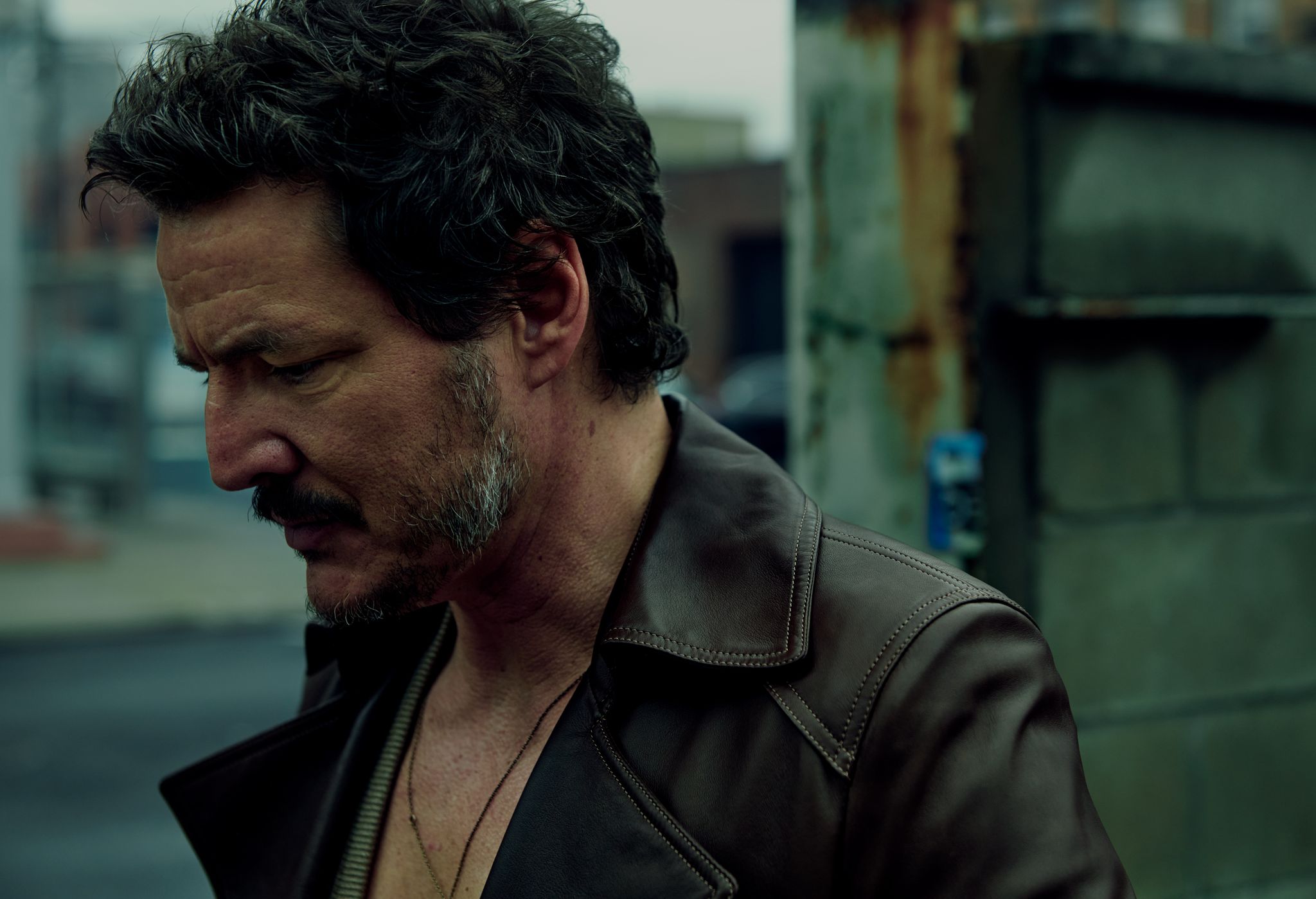
Coat and knit, Saint Laurent by Anthony Vaccarello; necklace by Werkstatt: München.
Advertisement - Continue Reading Below
There is an open secret we should bring up here. If you’ve played The Last of Us Part II, which millions of people have, you know that . . . something kind of major happens to Joel. Season 1 has taken some liberties while still following the plot of the first game fairly closely. So it’s fair to assume that we’ll have to prepare ourselves for, let us say, a show with a lot less Joel in it. Ramsey has not come to terms with the possibility. “If that does take place in the show,” she says, “I don’t know that I’m emotionally ready for it.” Mazin isn’t talking. “This should be fairly obvious to anyone by now, but I don’t fear killing characters,” he says. “But the important thing to note is that neither Neil [Druckmann, who co-created and exec-produces the series with Mazin] nor I feel constrained by the source material.”
Pascal hasn’t played the game or watched the scene where the thing happens, but he knows about it. And while he has no information about where the writers will go, he says, “It wouldn’t make sense to follow the first game so faithfully only to stray severely from the path.” He looks at me, eyes lit up with mischief, and shrugs again. “So, yeah, that’s my honest answer.” Some open secrets have to stay that way.
We begin to wrap up at Cafe Mogador, and the conversation turns to the challenges of working with the Grogu puppet. There are two, he tells me, including “one that is connected to what feels like the wires that control the Space Shuttle. Its eyebrows and eyes and lips and jaw muscles and ears and everything move in the most realistic way; it feels like a very real scene partner.” And then it’s time to go. As we leave, a woman pops out to say hello and that she’s a fan and that she’s just so happy about what’s happening for him right now. It’s her birthday, he asks her name, and they make conversation for a moment before she excuses herself because she doesn’t want to bother him. We walk back to his hotel and talk some more about Prince. Earlier, I’d told him about the time I was in the same room with the Purple One and he had a bodyguard who was in charge of a giant plastic swear jar that people had to put a dollar in if they took the Lord’s name in vain. This delighted Pascal: “I think I might believe in God now.”
Advertisement - Continue Reading Below
There is something undeniably inspirational about the way Pascal has followed his long and winding path to this point. He has a few more projects in the pipeline and, at the moment, almost infinite potential next steps. How does he plan to leverage his newfound clout? All he knows for sure is that his next move won’t be motivated by trying to keep this level of heat. “What’s next? I have no fucking idea,” he says. “I just hope that I have the maturity to not chase something that would mean more from the outside.”
“It’s just so psychotic,” Paulson says. “Everybody wants a piece of him.” She has some advice for Hollywood producers about why viewers connect with him, and how they should be regarding him. “You just want him to succeed,” she says. “And that to me, I feel like, is the sign of a major movie star. I’m ready for him to take the reins from the guys from romantic comedies past, like Bruce Willis and Mel Gibson and all these guys. He can be all that. Let’s remake Die Hard with Pedro. Remake all the Lethal Weapon movies with Pedro.”
Hey, it could happen. But there is plenty to navigate along the way. This is the moment when he stops being the underdog and starts being the Big Dog. When the public scrutiny gets more intense. When the people who want to tell him how happy they are for him transform one by one into people who want something from him.
I don’t know if he saw the paparazzo who snapped pictures of us as we walked; I just know I didn’t. It’s not until later in the day that the photos show up on Pedro Pascal Instagram fan accounts and someone sends me a link. (“P loves those New Balances,” says a commenter.) We hug goodbye at the corner near Pascal’s hotel, and he definitely sees the guy in the tracksuit with the FedEx envelope who pulls out something for him to sign. Then there are three of them, and then six, and ten. No joy in the eyes, only want. They don’t say they’re huge fans or that they’re just so happy about what’s happening for him right now. Instead, it’s: Here. Sign this. Take a picture. Give me something to put on eBay. They’ve been here all day, waiting. I see him sign a couple items, but I lose sight of him as the huddle blocks him out.
I just see the door open and then close behind him.

